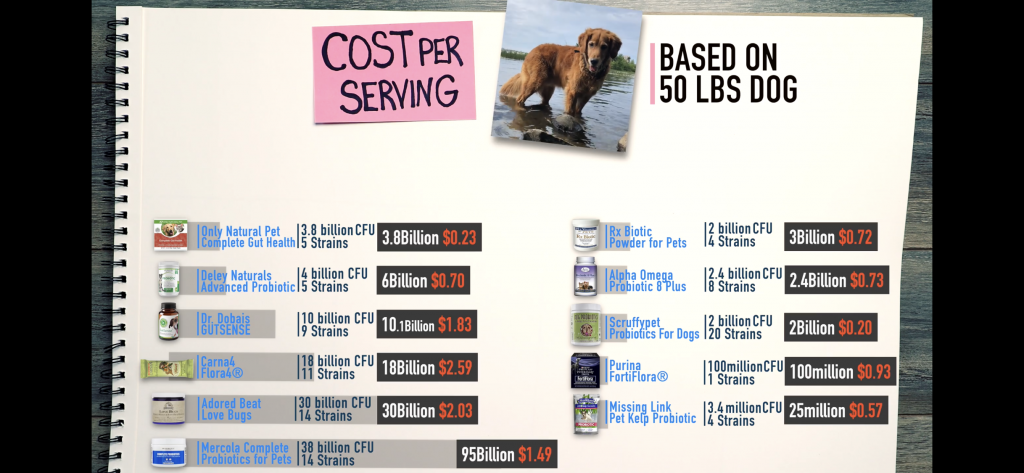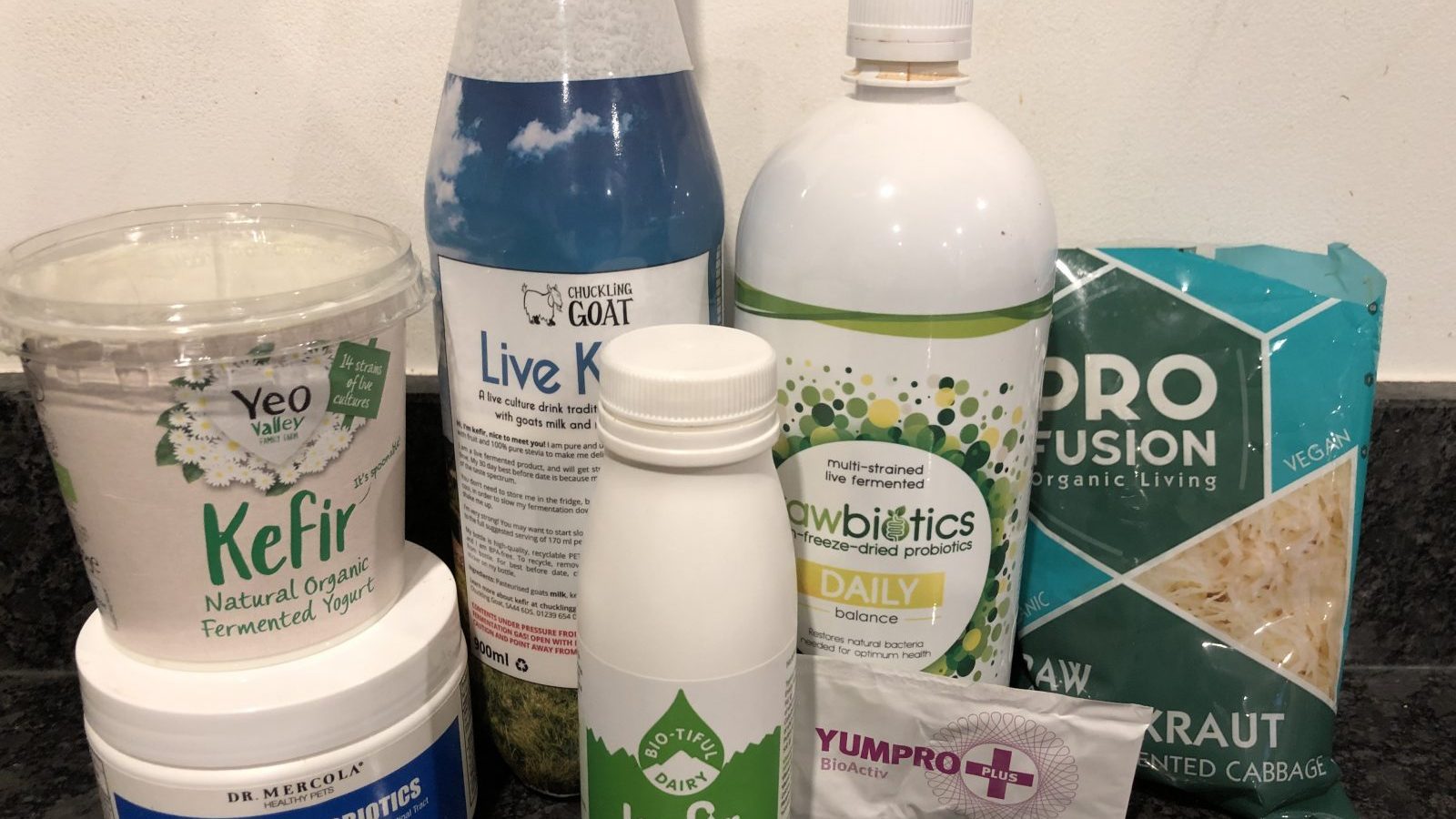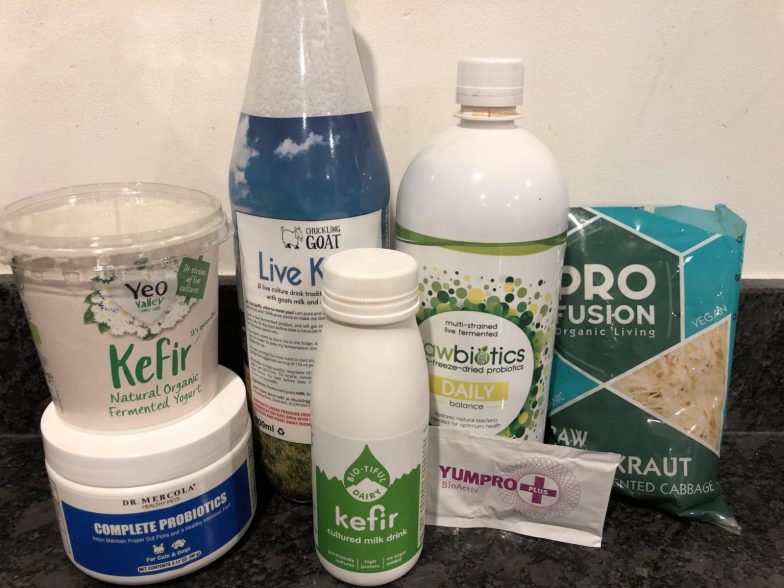Probiotics seems to be the “Buzz” word in the health world at the minute and rightly so. Bacteria used to get a bad press as they were seen as the bad guys to our health, but what’s now apparent is that the body contains hundreds of trillions of bacteria which are essential to our health and the balance of these good and bad bacteria are responsible for how our bodies respond to diseases and affect our immune system.
All in all, the research into probiotics indicates that supplementing with probiotics is probably more important than taking the best avaialble multi-vitamin and the same goes for our pets.
The change in diet for our pets over the last few decades to more processed long life dried foods has meant a huge reduction in beneficial bacteria passing through our pets ecosystem and the foods (prebiotics) that feed it. Starchy dried foods also feed the “bad bacteria” throughout the body so hence plaque build up, tartar , intestinal yeasts all thrive instead of being kept under control by the good bacteria. Couple that with an increase in antibiotic use and other drugs which can destroy all forms of bacteria, including the good guys, it’s not hard to see why we have such an epidemic of disease in our pets due to compromised immune systems. Raw foods however contain little or no sugars and starches and naturally contain lots of bacteria and enzymes which help to make up a healthy microbiome in the animals eating it.
So what are pro and pre biotics?
Probiotics are live microorganisms that live in various parts of your dog’s body, including the gastrointestinal tract, the oral cavity, nasal cavity, respiratory organs and even on the skin. Probiotics are usually referred to as the “good bacteria” and its important to get a balance of good (vs bad) bacteria as its vital for your dog’s health. Prebiotics are the insoluble fibre that feed the bacteria so that they can thrive so you need to provide both to your pets (see prebiotic details here). Probiotics come in various forms from natural fermented foods like Kefir, Kombucha, Saurkraut, bio yoghurts to off the shelf pills and liquids and the majority of these (depending on your individual pet) are good to add to your pets diet regularly.
What to look for in “off the shelf ” Probiotics?
Strains or species? How many strains/species are listed on the bottle ? EG: Lactobacillus planetarium, Bifodobacterium longum (these are the species) ! The bigger the number of strains the more diverse and beneficial the bacteria will be to the gutbiome of your pet. Each strain of bacteria does a different role in the gut so by choosing a probiotic that lists a larger number of strains the more chance you have of providing the right bacteria. However, you can also select individual Species of probiotics for certain health issues. See here for more in-depth overview.
CFU’S or Colony forming unit ! this is the amount of viable bacteria or fungal cells per sample of the listed strain of bacteria as above . The higher the Cfu the better for your pets. There should be billions of Cfus in the strain. see example below.

No fillers ! its a live probiotic so you dont need fillers which may potentially cause digestive or immune issues in your pet!
Personally, I don’t think you can go wrong with Mercola Pets Probiotics as they have 14x strains and a high CFU in each and formulated by top vet Dr Karen Becker. details here However, good quality Kefir and some fermented vegetables (if they will eat them) can be added too and found in most health food stores including Mossley Wholefoods.
When to add Probiotics ?
Good bacteria are crucial for the health of your dog’s gut and brain. But they also support the digestive process, nutrient absorption and most importantly their immune system. Boosting your dog’s immune system is probably the most important role of probiotics. As much as 80% of your dog’s immune system is based in their gut, so an unhealthy gut with little good bacteria, or an overload of bad bacteria makes a welcome environment for disease. A balance of good bacteria helps reduce inflammation throughout your dog’s body and that lowers their susceptibility to chronic disease. They also balance and make neurotransmitters in the brain, so an out of balance gut can effect behaviour and mood in our pets. So with that in mind we should all add a variety of forms of probiotics and prebiotics to our pets diet regularly to enhance their immune system and give them the tools to help combat disease. However, probiotics are even more so important when your pets have to take antibiotics, have digestive issues, allergies or any sort of yeast or bacterial issues to help them recover more quickly. Always consult with your vet to discuss the best course of action.
If your dog is taking antibiotics, it’s a good idea to alternate them with probiotics so you’re constantly trying to limit the damage done by the antibiotic. Resident Dogs Naturally vet Patricia Jordon dvm, recommends giving probiotics two hours after each antibiotic dose as its more effective than trying to repair the gut after the antibiotics are finished.
Hope that was helpful and as always consult your vet in regards to any specific health issues your pet maybe experiencing. The above is just research and products that I choose to use with my own dogs.

